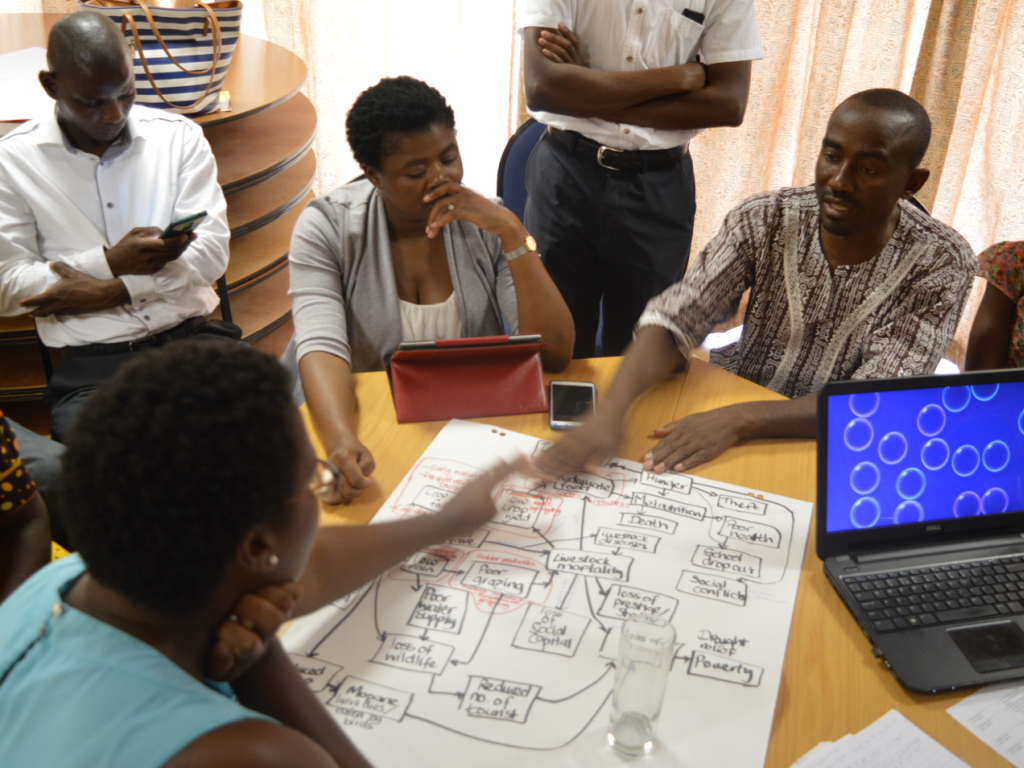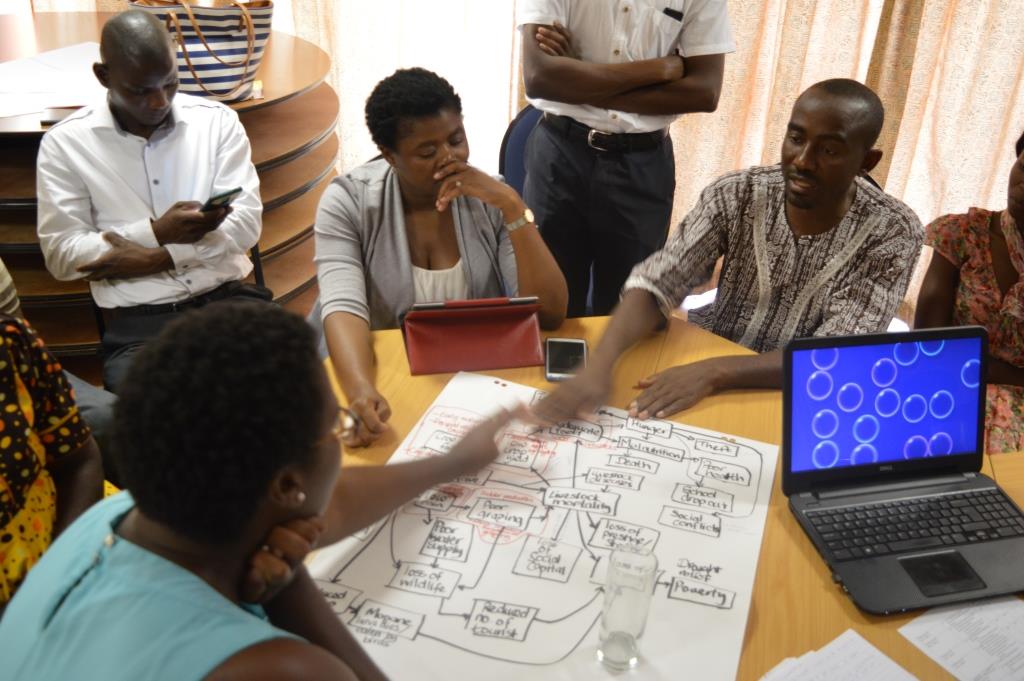A brain overload

Why does Chandapiew Molefe love her work?
By Chandapiwa Molefe, Research Assistant, University of Botswana

The main lesson for me being a part of ASSAR has been learning how to run and implement an adaptation project. Before joining ASSAR I was employed by a number of projects, but it is now clear to me how I can distinguish a project that is solely done for the sake of research and gaining publication, and a research project that aims to influence adaptation. Through ASSAR I have learned that vulnerable communities come first and should be the centre of any research.
My highest point in ASSAR has been when I have been given an opportunity and platform to engage with national and local level authorities. For me, the most important engagements have been with the ASSAR stakeholders at different scales, through key informant interviews, Vulnerability and Risk Assessment workshops, and the Transformative Scenario Planning training. I have gained most capacity in working and engaging with the most senior national level stakeholders. These opportunities have set a pace for my career as a young researcher.
Working in a consortium is resourceful, especially when it comes to sharing opportunities as well as knowledge. The difficulty comes when one has to work with many different agendas and deliverables at the same time. This means we are often stressed and under pressure to overcome the workload or plan for an event or engagement. Sometimes it feels as though we are ticking boxes when we complete tasks.
What keeps me motivated is that I love what I do. I enjoy working with communities especially, and researchers from a multitude of backgrounds. This has been very exciting and challenging at the same time.
The thrill of an overloaded schedule - and the completion of each task - keeps me going. I find it challenging when things get stuck, when you get a no, or less input than expected. While things have not always been easy, I feel that working relations within ASSAR have been improving over time. Especially with the Southern African team we no longer only identify ourselves as representatives of the University of Botswana, University of Namibia and University of Cape Town, but members of the ASSAR team.
I would like to be involved in a project like this again: I want to be conducting research that informs policy and empowers rural communities to adapt to a changing environment and to improve their livelihoods. Within ASSAR, I would be most satisfied seeing the research findings being used towards this aim. I have changed my perspective in that I will no longer be running after publications but be most concerned about positively impacting.